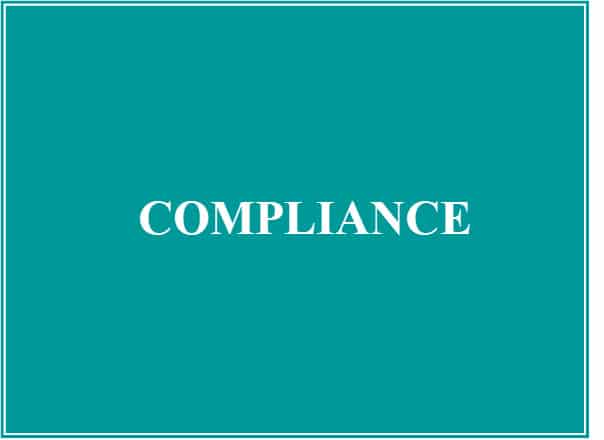
Top 5 Compliance Tips: Cannabis licensees should review their standard operating procedures
Below are my current Top 5 Compliance Tips. Cannabis licensees should review their standard operating procedures at least once per year and ensure that employees are following them. Compliance is an everyday activity, not just something that happens during an inspection.
Medicinal-Use Sales Documentation Requirements
We are starting to see local jurisdictions and the California Tax and Fee Administration (CDTFA) conduct audits on medicinal-use cannabis sales and the taxes collected. A physician’s recommendation is required for ALL medicinal-use sales to customers even if the person has a valid Medicinal Marijuana Identification Card (MMIC). The 15% excise tax must be collected from ALL customers including medical-use and adult-use customers. To be eligible for sales tax relief, the customer must provide a valid MMIC. Retailers are required to verify the physician’s recommendation and/or the MMIC prior to completing the sale and there are very specific document retention requirements. The requirements are much more complex that I’m writing about here, so make sure that you are compliant to avoid costly errors. If you need assistance in developing a compliant operating procedure and training your employees, let ALG Strategies know.
Inventory Reconciliation
Licensees are required to conduct an inventory reconciliation at least once every 30 days that compares on-hand inventory with inventory reported in MetrC. It is often not enough to rely on your POS alone to ensure that MetrC is accurate. Make sure to document the results of your inventory reconciliation and to keep a copy of the inventory reconciliation result as an official record. Inventory discrepancies of 5% or more must be reported to the DCC within 24 hours of discovery.
DCC Notification Requirements
The DCC requires that the licensee notifies them in the following incidences within either 24 hours or 14 calendar days depending on the topic.
-Premises diagram changes
-Theft, diversion, or loss of inventory
-Security breaches including loss of video surveillance
-Changes in ownership or financial interest holders
-Cancelation of the surety bond
-Changes in an owner’s conviction history
-Addition or change in the fictitious business name or “doing business as” name of the licensee
-Inventory discrepancy of 5% or greater (generally discovered during an inventory reconciliation)
Delivery Inventory Ledger
Beginning April 1, 2023, retailers conducting delivery services are required to use the Delivery Inventory Ledger within MetrC. If the retailer’s point-of-sales system (POS) does not flow into or populate MetrC, you must manually enter the Delivery Inventory Ledger data into MetrC to be compliant. Check with your POS provider to determine how it handles the new Delivery Inventory Ledger requirement. Click here for ALG Strategies’ Delivery Inventory Ledger Blog.
Cal-OSHA 30-Hour General Industry Training
Within one year of being approved for a state cannabis license, the licensee is required to meet the Cal-OSHA training requirement. Licensees must have at least one supervisor and one employee complete the Cal-OSHA 30-hour general industry training offered by a training provide approved as a OSHA Training Institute Education Center. If one of your Cal-OSHA trained employees leaves, then you must have another person complete the training and obtain the completion certificate.

